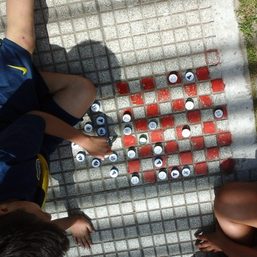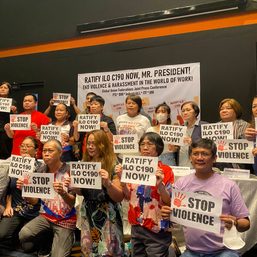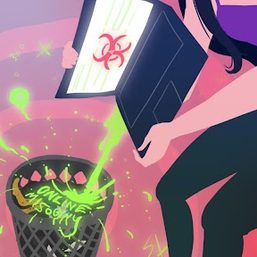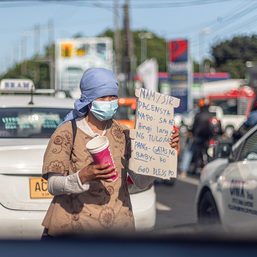SUMMARY
This is AI generated summarization, which may have errors. For context, always refer to the full article.

MANILA, Philippines – The Supreme Court (SC) has affirmed that Republic Act No. 9262 or the Anti-Violence Against Women and their Children (VAWC) law also covers lesbian relationships.
The High Court’s Third Division, in a 10-page decision penned by Associate Justice Henri Jean Paul Inting, denied the petition for review on certiorari filed by a certain Sandra Jane Gagui Jacinto, which sought to challenge the orders of Antipolo City Regional Trial Court Branch 73.
Certiorari is used to seek a review of a lower court’s decision.
In its decision, the Antipolo City court junked Jacinto’s motion to quash the case against her, where she was charged for violating the Anti-VAWC law.
In denying Jacinto’s motion, the High Tribunal reiterated the principle present in its previous ruling, Garcia v. Drilon, in 2013.
The ruling states: “VAWC may likewise be committed ‘against a woman with whom the person has or had a sexual or dating relationship.’ Clearly, the use of the gender-neutral word ‘person’ who has or had a sexual or dating relationship with the woman encompasses even lesbian relationships.”
The SC also pointed out that, contrary to the petitioner’s position, the High Court’s pronouncement in the Garcia v. Drilon case is not obiter dictum – a judge’s expression of opinion not essential to the ruling, and does not establish a precedent. Thus, the said jurisprudence can be applied to Jacinto’s case.
In addition, the SC said the Garcia vs. Drilon case can be used because “the discussion on the applicability of the Anti-VAWC Act to lesbian relationships was a resolution of the issue in Garcia of whether or not the Anti-VAWC Act was discriminatory for supposedly singling out husbands or fathers.”
The SC also noted that Jacinto’s recourse to the High Tribunal was improper because the denial of a motion to quash a charge is an “interlocutory order” – meaning, it is not appealable, nor can be a subject for a petition for certiorari. The SC added that the proper remedy for Jacinto is to go to trial and appeal the “adverse judgment” against her, “should one be rendered by the RTC.”
Even if the court takes an exception and consider Jacinto’s petition as one filed under Rule 65 of the Rules of Court, the case would still be dismissed for disregarding the judicial hierarchy of courts, the SC said.
What happened before
In 2018, a case was filed against Jacinto after she allegedly attacked her live-in partner, Maria Eloisa Sarmiento Fouts. Jacinto was said to cause physical injuries to Fouts – a violation of Anti-VAWC law’s Section 5(a).
The accused then moved to challenge the case on the ground that the charge could not be considered because the Anti-VAWC law does not apply to lesbian relationships. The Antipolo City RTC denied Jacinto’s motion to quash and the motion for reconsideration that followed.
This prompted Jacinto to bring the case to the High Court and filed a petition for review on certiorari. – Rappler.com
Add a comment
How does this make you feel?

![[OPINYON] Diborsiyo sa mata ng isang anak](https://www.rappler.com/tachyon/2024/06/new-school-divorce-children-june-13-2024.jpg?resize=257%2C257&crop=294px%2C0px%2C720px%2C720px)



















![[OPINION] Unpaid care work by women is a public concern](https://www.rappler.com/tachyon/2024/07/20240725-unpaid-care-work-public-concern.jpg?resize=257%2C257&crop_strategy=attention)
![[DECODED] The Philippines and Brazil have a lot in common. Online toxicity is one.](https://www.rappler.com/tachyon/2024/07/misogyny-tech-carousel-revised-decoded-july-2024.jpg?resize=257%2C257&crop_strategy=attention)


![[OPINION] Why women seek divorce](https://www.rappler.com/tachyon/2024/06/TL-women-seeking-divorce-june-14-2024.jpg?resize=257%2C257&crop_strategy=attention)
There are no comments yet. Add your comment to start the conversation.